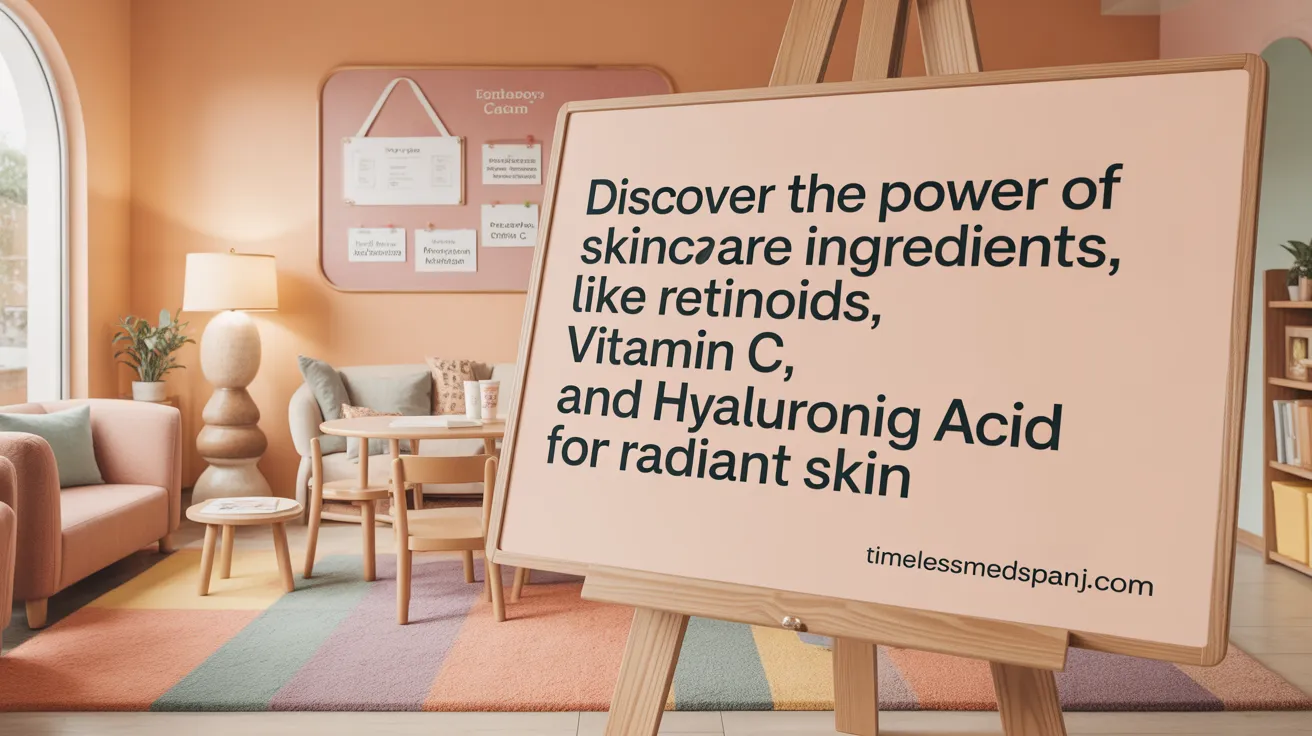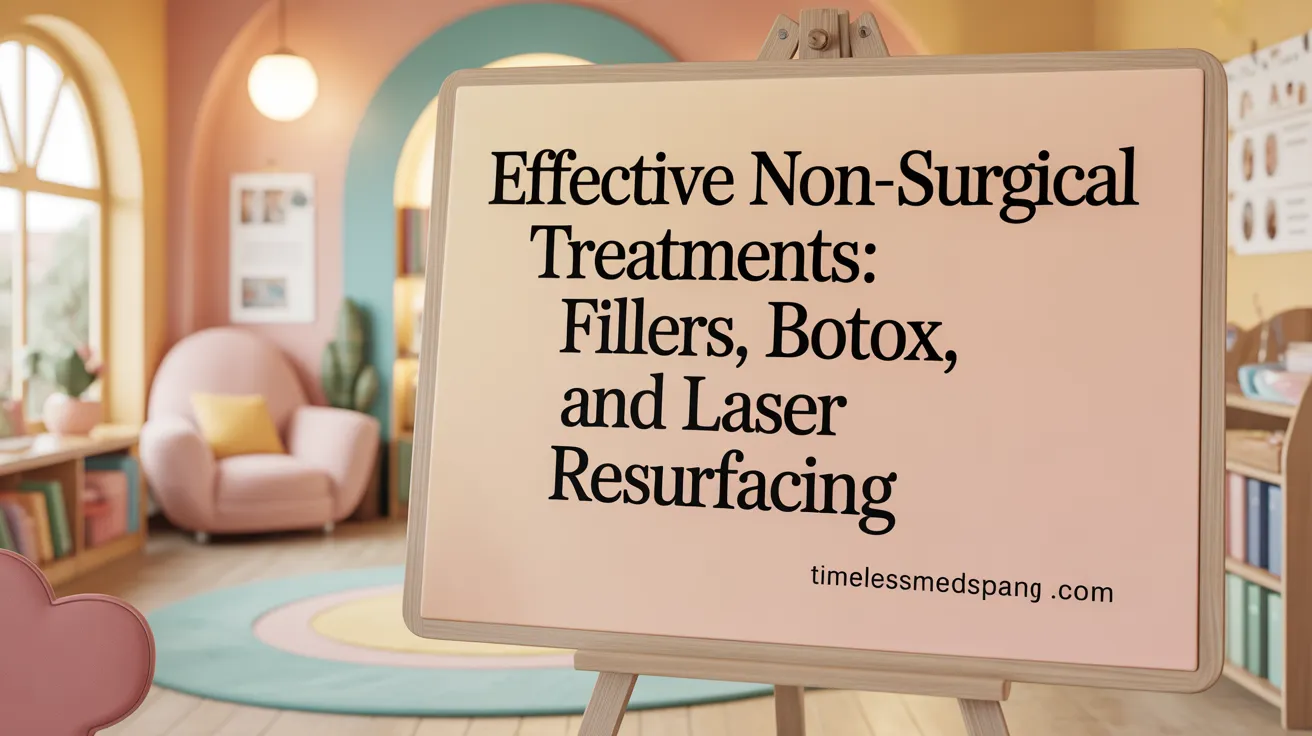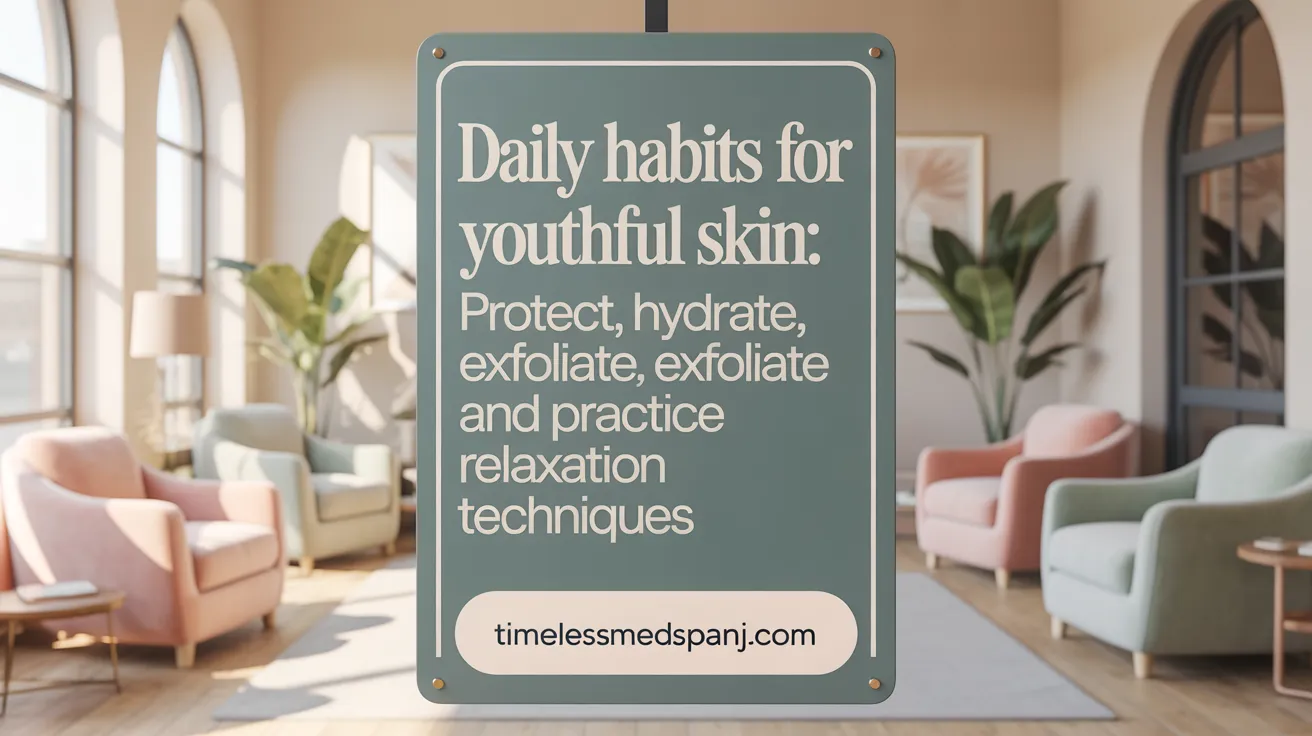Understanding the Battle Against Skin Aging
Aging skin is a natural process marked by the breakdown of collagen and elastin, leading to wrinkles, sagging, and uneven tone. Sun exposure accelerates this aging, causing damage that manifests as age spots, fine lines, and dullness. To combat these signs effectively, one must understand the variety of treatments and products backed by science and expert guidance. This article explores the best anti-aging skin care treatments, both surgical and non-surgical, and highlights expert tips to maintain youthful skin.
Expert-Recommended Clinical Treatments for Anti-Aging Skin Care

What are the most effective anti-aging skin treatments according to experts?
Medical professionals and dermatologists agree that several treatments stand out for their proven ability to combat signs of aging. Chemical peels top the list as they remove the upper skin layers, encouraging fresh skin growth and reducing age spots, fine lines, and uneven tone. These peel treatments, especially in higher strengths performed in clinics, can significantly improve skin texture and clarity.
Microneedling is another popular method that produces tiny injuries in the skin. This stimulates the natural collagen and elastin production, which helps improve skin firmness, reduce wrinkles, and enhance overall texture. Studies have shown that a series of microneedling sessions can lead to substantial collagen increases—up to 400% over six months—making skin appear plumper and more youthful.
Laser resurfacing involves focused light pulses, such as Fraxel or CO2 lasers, which remove damaged outer skin layers. This stimulates new collagen growth, smoothing out fine lines and wrinkles while addressing sun damage and scars. Laser treatments are highly customizable based on the skin's condition, with gentler options providing less downtime and more sessions for cumulative results.
Dermal fillers, including hyaluronic acid-based options like Juvederm and Restylane, are used to restore facial volume, smooth deep lines, and lift sagging areas. The results are immediate and improve further over a couple of weeks as swelling subsides and the products integrate.
In addition to these procedures, neuromodulators such as Botox, Dysport, Xeomin, and Daxxify are widely used for their ability to relax facial muscles. By reducing muscles activity, these injections soften dynamic lines like frown lines, crow’s feet, and forehead wrinkles, providing a smoother appearance.
Experts also often recommend combination therapies. For example, pairing microneedling with Platelet-Rich Plasma (PRP) enhances healing and collagen production, optimizing skin rejuvenation.
Routine treatments like facials and dermaplaning are beneficial for maintaining healthy skin, enhancing glow, and preparing skin for more invasive procedures.
For sustained anti-aging effects, integrating these treatments with a good skincare regimen—featuring antioxidants like Vitamin C, retinoids, and daily sun protection with SPF 30 or higher—is crucial. This approach maximizes results and preserves youthful skin for longer.
In summary, the most effective anti-aging strategies involve a combination of clinical procedures—such as chemical peels, microneedling, laser therapy, and fillers—and a consistent skincare routine emphasizing sun protection, antioxidants, and skin barrier support. Consulting with trained dermatologists ensures personalized, safe, and optimal skin health management.
Topical Ingredients with Proven Anti-Aging Benefits
 When it comes to fighting signs of aging, some skincare ingredients are supported by strong scientific evidence for their effectiveness.
When it comes to fighting signs of aging, some skincare ingredients are supported by strong scientific evidence for their effectiveness.
Retinoids, including retinol, retinaldehyde, and tretinoin, are considered the gold standard. Decades of research have shown that they can significantly reduce wrinkles, fine lines, and improve skin texture. Retinoids work by boosting collagen production and promoting faster cell turnover, leading to firmer, smoother skin.
Vitamin C serums are another popular ingredient. As a powerful antioxidant, vitamin C helps protect the skin from environmental damage caused by free radicals. Clinical studies indicate that vitamin C can brighten skin, fade dark spots, and stimulate collagen formation, resulting in a more youthful appearance.
Niacinamide, or vitamin B3, is also gaining recognition. It can reduce the appearance of large pores, soften fine lines, and even out skin tone. Although its benefits are supported by some studies, ongoing research aims to further confirm its role in anti-aging routines.
Exfoliating acids like alpha hydroxy acids (AHAs), especially lactic acid, help remove dead skin cells, revealing fresher, brighter skin underneath. Regular exfoliation can improve dullness, enhance the effectiveness of other products, and reduce the appearance of fine lines. Studies suggest they promote cell turnover and skin renewal.
Hyaluronic acid is renowned for its moisture-binding properties. It helps keep skin hydrated and plump, which diminishes the look of wrinkles. Peptides, small chains of amino acids, are thought to signal skin cells to produce more collagen, though scientific support for their anti-aging effects is still emerging.
Protection from sunlight remains fundamental. Daily use of broad-spectrum SPF 30 or higher prevents photoaging, the primary cause of wrinkles and age spots. Ample evidence supports sunscreen's role not only in preventing skin cancers but also in reducing the development of visible skin aging.
Lastly, antioxidants like vitamin C and E provide defense against environmental stressors. They neutralize free radicals, thereby minimizing skin damage over time and supporting overall skin health.
In summary, the most validated anti-aging skincare ingredients include retinoids, vitamin C, and sun protection. These, combined with hydration and gentle exfoliation, form the foundation of effective, science-backed skin aging prevention.
For more information, searching
Non-Surgical Solutions for Deep Wrinkles and Volume Loss

What non-surgical treatments are effective for deep wrinkles?
Tackling deep wrinkles without surgery involves a variety of advanced cosmetic procedures. Chemical peels and laser resurfacing are among the most effective options, encouraging the skin to produce new collagen and smooth out the skin surface. Chemical peels use special solutions to remove damaged outer skin layers, revealing fresher skin underneath, while laser treatments target deeper skin layers to stimulate collagen growth.
Prescription retinoids, including tretinoin, tazarotene, and adapalene, are topical creams that promote skin cell turnover and collagen synthesis. Over time, they can reduce the appearance of fine lines and some deeper wrinkles, especially when used consistently.
Injectable dermal fillers, such as hyaluronic acid-based products (like Juvederm and Restylane), Radiesse, and Sculptra, physically lift and plump the skin's deeper areas. Results are immediate with fillers, and they can last from several months up to a few years depending on the product used.
Neuromodulators such as Botox, Dysport, or Xeomin work by relaxing the underlying muscles that cause dynamic wrinkles. This relaxation prevents repetitive movements, allowing deep lines, especially in the forehead and around the eyes, to soften over time.
Microdermabrasion offers a physical exfoliation that can improve superficial skin texture and minor irregularities. When combined with other treatments, it can help enhance the overall appearance of deep wrinkles.
Many patients benefit from combining these procedures for optimal results. For example, using Botox to relax muscles paired with fillers to restore volume can significantly improve the appearance of severe wrinkles, providing a more refreshed and youthful look.
Overall, selecting the right combination of treatments depends on individual skin condition and desired outcomes, so consulting a trained dermatologist is highly recommended.
Surgical Options and When They Are Appropriate
What are facelifts, and when are they suitable?
Facelifts, or rhytidectomies, are surgical procedures designed to lift and tighten sagging skin on the face and neck. They are typically recommended for individuals with moderate to severe skin laxity who want long-lasting results. A facelift can effectively address deep wrinkles, jowls, and sagging jowl lines, providing a more youthful appearance.
What is a brow lift, and who should consider it?
A brow lift, also known as a forehead lift, elevates drooping eyebrows and smooths horizontal forehead lines. Suitable candidates are those experiencing tired-looking eyes, sagging brows, or forehead wrinkles. This procedure can improve the overall expression, making the face look more alert and youthful.
When is eyelid surgery (blepharoplasty) appropriate?
Eyelid surgery targets drooping eyelids, puffy bags, and wrinkles around the eyes. It is ideal for individuals whose aged appearance is caused by excess skin or fat in the upper or lower eyelids. It can restore a rested, alert look and improve vision if eyelid drooping obstructs sight.
What about neck lifts?
Neck lifts tighten loose skin and muscles in the neck area, reducing the appearance of banding and sagging. They are appropriate for patients with significant neck laxity and excess skin, often performed alongside facelifts for more comprehensive rejuvenation.
How long do surgical results last?
Surgical enhancements tend to offer long-lasting results, often enduring 7 to 10 years, depending on age, skin quality, and lifestyle factors like sun exposure or smoking. While they don't stop aging, the results can significantly slow visible signs of aging.
What are typical recovery times and risks?
Recovery from facial surgeries varies: facelifts may require two weeks of swelling reduction, with full healing up to several months. Risks include anesthesia reactions, infection, scarring, nerve injury, and asymmetry. Proper preoperative assessment and choosing a board-certified surgeon minimize these risks.
Considering these surgical options depends on individual goals, skin condition, and age. Consulting a qualified plastic surgeon can clarify which procedures align with personal needs for optimal, natural-looking outcomes.
Maintaining Skin Health: Essential Daily Habits and Routines

What skincare habits contribute to anti-aging effects inspired by Japanese skincare routines?
Japanese skincare routines emphasize preventative care and gentle, consistent habits that support youthful skin. Daily use of broad-spectrum sunscreen with at least SPF 30 is crucial to shield skin from harmful UV rays that accelerate aging and cause age spots. This simple step helps prevent fine lines, wrinkles, and discoloration.
Hydration plays a pivotal role. Drinking plenty of water and eating hydrating foods like fruits and vegetables maintain the skin's moisture barrier. Proper hydration ensures skin remains elastic, plump, and resilient.
Gentle cleansing is recommended to remove dirt and excess oils without stripping natural oils, which can dry out and damage delicate skin. Using mild cleansers tailored for your skin type helps sustain a healthy skin barrier.
Incorporating antioxidants such as vitamin C serums and green tea extracts into your routine provides powerful protection against environmental damage. These ingredients neutralize free radicals, reduce oxidative stress, and brighten the skin.
Exfoliation should be performed once or twice a week with mild acids like lactic acid to remove dead skin cells and promote cell renewal. Over-exfoliating can irritate skin, so moderation is key.
Lifestyle choices significantly influence skin aging. A balanced diet low in processed foods and sugars supports skin health from within. Regular physical activity boosts circulation and collagen production, while sufficient sleep allows skin to repair and regenerate.
Managing stress through mindfulness practices, nature walks, or hobbies enhances mental health and reduces cortisol levels, which can negatively impact skin elasticity and cause inflammation.
By integrating these daily habits—protecting, hydrating, nourishing, exfoliating, and managing stress—individuals can foster healthier, more youthful skin inspired by the holistic principles of Japanese beauty routines.
For further insights on establishing effective daily skincare routines, searching for 'daily anti-aging skincare habits' can provide tailored advice and product recommendations to maintain skin vitality as part of ongoing self-care.
Choosing the Right Anti-Aging Products and Managing Expectations
Selecting products by skin type and needs
When choosing anti-aging skincare, it’s important to pick products tailored to your specific skin type. Oily, sensitive, or dry skin each require different formulas for optimal results. For example, those with dry or mature skin benefit from moisturizers containing hyaluronic acid and ceramides that boost hydration. If you have oily or acne-prone skin, lighter, non-comedogenic formulations are preferable.
Reading ingredient labels
Looking at ingredients helps you select effective products. Focus on ingredients like retinoids (retinol, retinaldehyde), vitamin C, niacinamide, peptides, and exfoliating acids (AHAs). These are scientifically proven to reduce signs of aging. Avoid products with excessive fragrances or harsh chemicals if you have sensitive skin.
Importance of consistency
Consistency is critical for anti-aging results. Applying products as recommended, usually twice daily, helps stimulate collagen, improve texture, and reduce wrinkles over time. Skincare is a long-term commitment, and regular use enhances the efficacy of ingredients like retinoids and antioxidants.
Realistic expectations of wrinkle creams
While effective, topical wrinkle creams often offer modest improvements. They can smooth surface lines, boost hydration, and improve skin tone, but won’t eliminate deep wrinkles or sagging alone. Expect gradual changes and combine them with other treatments for more noticeable effects.
Combining products with professional treatments
For best results, pair skincare routines with professional procedures such as laser resurfacing, chemical peels, or injectables like Botox and fillers. Dermatologists can recommend personalized combos to address specific concerns like deep wrinkles or age spots.
Price vs effectiveness
High price doesn’t guarantee better results. Many effective products are affordable and contain potent ingredients. Focus on formulations supported by science and tailored to your needs. Sometimes, drugstore brands with active ingredients like retinol can rival luxury options in performance without the hefty price tag.
Post-Treatment Care and Sustaining Results for Long-Term Youthful Skin

How important is post-procedure skin care?
Proper skin care after treatments like laser resurfacing, chemical peels, or injectables is vital to maximize results and ensure smooth healing. Dermatologists often recommend gentle cleansing, moisturizing, and avoiding harsh skincare products initially.
Why should I avoid sun exposure and use antioxidants after treatments?
Sun protection is crucial because UV rays can damage freshly treated skin, reversing progress and causing pigmentation issues. Daily broad-spectrum SPF 30 or higher should be part of your routine, regardless of weather. Incorporating antioxidants like vitamin C serums helps defend against environmental damage and promotes collagen renewal.
What follow-up treatments and maintenance routines help keep youthful skin?
To prolong the effects of procedures, regular maintenance is essential. This might include periodic Botox or filler touch-ups, chemical peels, or laser sessions. At home, using proven anti-aging products containing retinoids, peptides, and hyaluronic acid supports ongoing skin health.
Why should I consult with board-certified dermatologists?
A qualified dermatologist can tailor a skincare and treatment plan suited for your skin type and aging signs. They also monitor your skin’s progress, adjust your routine, and recommend necessary follow-up procedures to maintain youthful skin.
Is annual skin checking necessary?
Regular skin exams help detect early signs of aging and skin issues like age spots or precancerous lesions. These checks ensure your skin remains healthy and any necessary interventions are identified early.
How do combining treatments and at-home skincare benefit long-term results?
Integrating professional procedures with a consistent daily skincare routine compounds their effects. Products with ingredients such as vitamin C, niacinamide, and retinoids enhance collagen production and skin repair, maintaining a youthful appearance over time.
Integrating Science and Care for Lasting Youthful Skin
The quest for youthful skin is supported by a robust arsenal of treatments ranging from scientifically proven topical ingredients like retinoids and vitamin C to cutting-edge clinical procedures such as laser resurfacing and injectable fillers. Maintaining consistent daily routines emphasizing sun protection and hydration complements these treatments, enhancing and prolonging results. Whether opting for non-surgical rejuvenation or considering surgical intervention, individualized care guided by dermatology experts ensures achievable outcomes aligned with personal needs and expectations. By combining informed product choices, expert treatments, and healthy lifestyle habits, one can effectively combat the signs of aging and embrace radiant, resilient skin for years to come.
References
- 6 Anti-Aging Treatments That Skin Pros Say Are Actually Worth It
- Anti-ageing products that actually work: Sali Hughes on the 30 best ...
- Skin care for aging skin: Minimizing age spots, wrinkles, and ...
- Cosmetic Procedures for Aging Skin - WebMD
- Aging Skin - American Society for Dermatologic Surgery
- 10 Best Wrinkle Creams That Actually Worked in Our Lab Tests
- Treatments to Reduce Wrinkles - Cleveland Clinic
